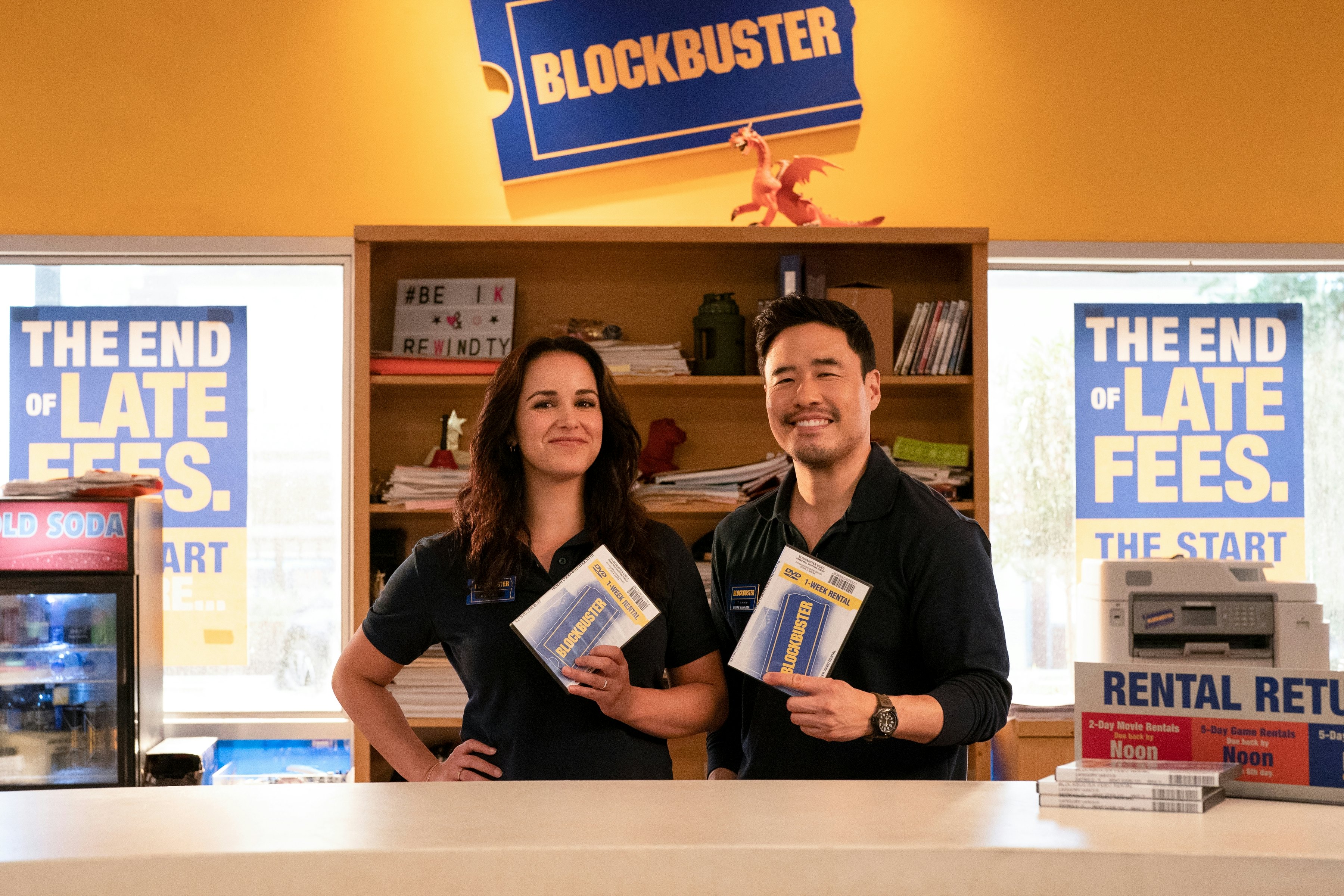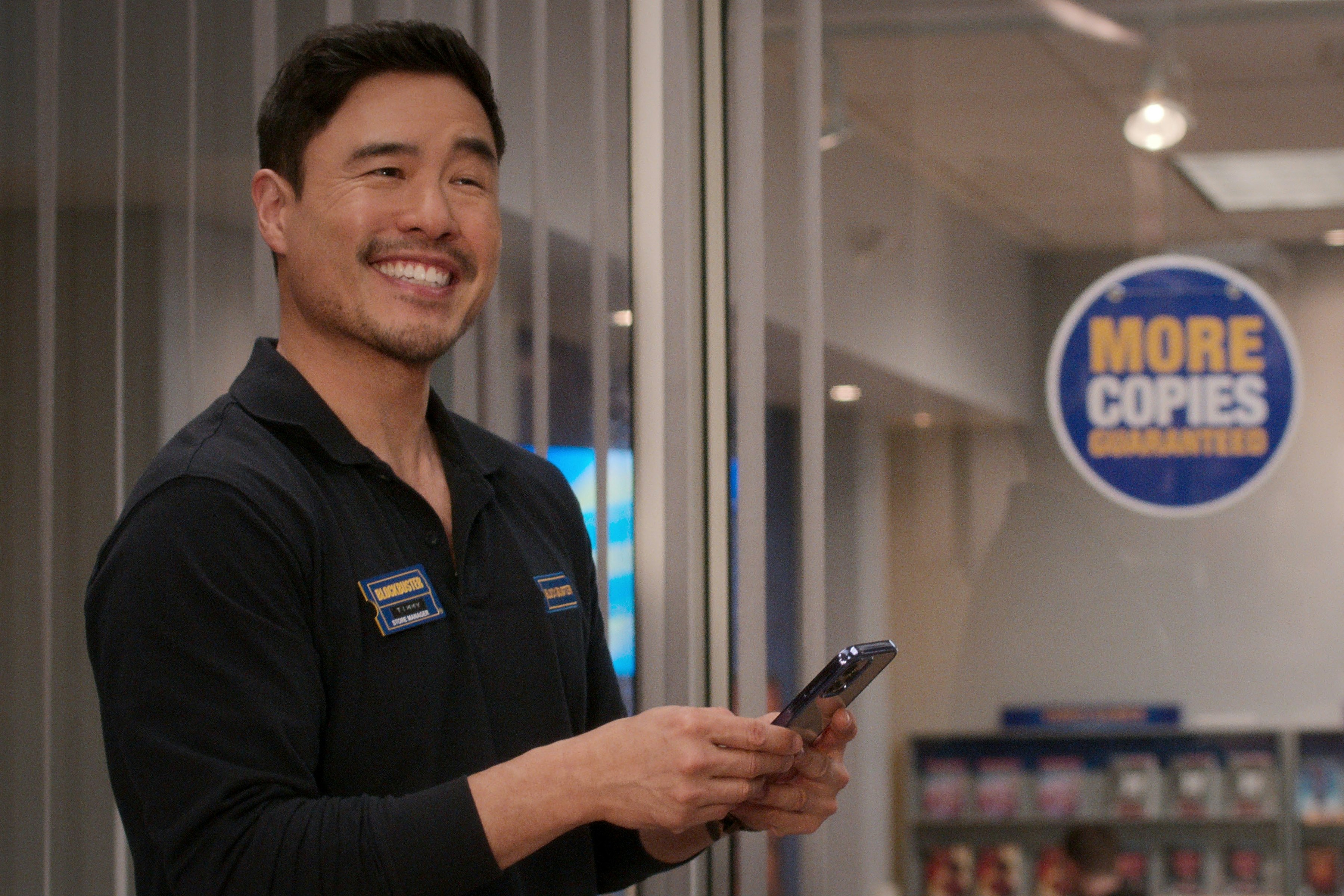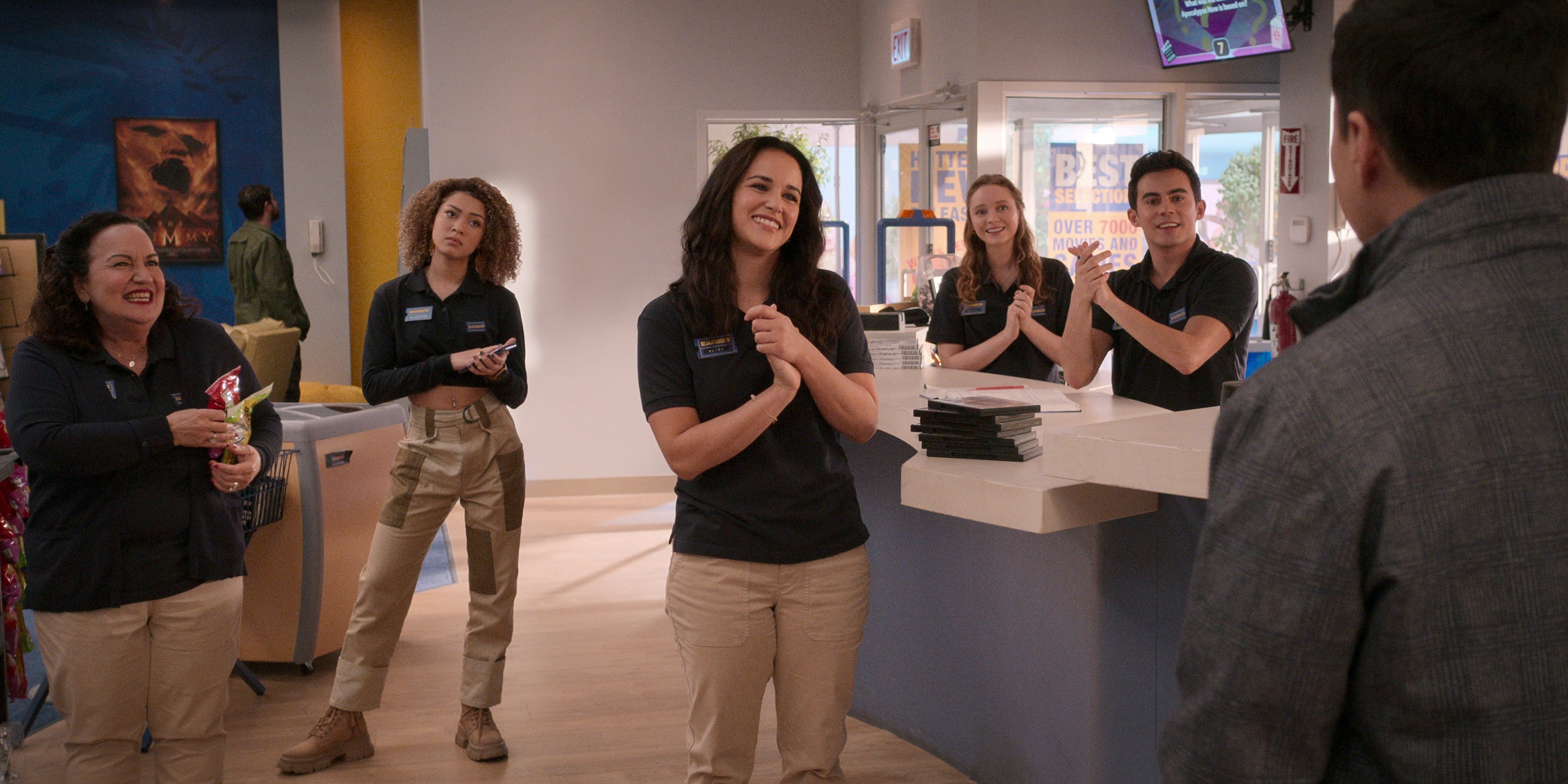
There’s something comically cruel about a Netflix sitcom set in a Blockbuster. But those working behind the counter say it’s sweet too.
At its peak circa 2004, the colossal home video rental franchise spanned over 9000 stores worldwide. Its fall throughout the 2010s is well-documented; Vox podcast Land of the Giants covered its demise in 2020, and Netflix began streaming the documentary The Last Blockbuster that same year.
But the short version is simple to grasp. A cocktail of the internet, evolving consumer habits, and Blockbuster’s hubris forced the blue-and-yellow titan to yield to, well, Netflix. But one last Blockbuster still stands in Bend, Oregon. It’s that stubborn will to live, and desire to thrive, that inspired Blockbuster on Netflix, streaming November 3.
In Blockbuster, WandaVision star Randall Park is Timmy, the well-meaning but flummoxed manager of a Minnesota Blockbuster who becomes a small business owner when corporate headquarters call it quits. In addition to his neuroses as a 40-something man living in the town he grew up in, he employs longtime crush Eliza (Melissa Fumero), a Harvard dropout and divorcee. Aided by his staff and best friend/landlord Percy (J.B. Smoove), Timmy tries to keep his “small business” afloat — a business that bears the name, logo, and legacy of an overthrown juggernaut embedded in aging millennial nostalgia.
While the story of Blockbuster (the franchise) is full of drama and corporate intrigue, series creator and showrunner Vanessa Ramos says the making of Blockbuster (the show) “could not be a more boring story.”
“I apologize in advance,” Ramos tells Inverse, saying it all begins with producer John Fox, who had the rights to Blockbuster’s story. “He came to me and was like, ‘Would you be interested in developing a workplace comedy?’”
As a writer whose credits include Brooklyn Nine-Nine (an ensemble, will-they-won’t-they set in a police precinct) and Superstore (an ensemble, will-they-won’t-they set in a big box store), Ramos was in.
“Let’s be honest, I was gonna do a workplace comedy somewhere,” she says. “Immediately, it was like, ‘Yes.’ It felt like getting the golden ticket.”
Creatively, Ramos says making the show was like improv. “Like, ‘Here’s your location. Go.’” She started with Timmy, because it takes a specific personality to want to own and operate a Blockbuster in the age of streaming. “What type of person would work in Blockbuster in 2022, much less run it, unless they have this personal connection?”

The pandemic inspired the rest of the show’s characters. “[During the] pandemic, I was missing all these people in my life. Connie is based on my mom. It was just building around Timmy and the rest of the pieces were a bit of a fantasy team of people I missed.”
Ramos says Netflix “understood” that the show calls for a combination of tact and an embrace of self-mockery, with the premise innately framing Blockbuster as the underdog David versus the Goliaths of streaming. While the optics of Blockbuster could be seen as Netflix dancing on its rival’s grave, the series also pokes fun at streaming’s quirks and shortcomings.
“We can’t not address it,” Ramos says. “There has to be some stuff. Short of saying ‘Screw Netflix,’ they were open to us playing into that.”
It was kismet that Blockbuster stars comic actor Randall Park. Prior to his Hollywood career, Park worked in video retail, just like his character, Timmy.
“It was a regular part of my life,” he tells Inverse. “I worked video rental while in high school for several summers. I saw the downfall of the stores and the shifting of the tides. We all kind of lived it.”
While none of the show’s cast and crew officially ventured to the Blockbuster in Oregon for research, Melissa Fumero tells Inverse she went by herself long ago and found it surreal.

“I worked in Bend and stayed down the street from that Blockbuster,” Fumero says. “I went in once just because I was like, ‘Oh my god, I haven’t seen a Blockbuster in so long.’ This was before the documentary, so I had no idea about the story.”
Whether it’s a Blockbuster in Minnesota or a police precinct in New York, Fumero argues that the story of two people with strong feelings for each other who can’t quite get in sync is what pumps the show’s beating heart. “It’s more than a workplace comedy,” Fumero says. “It’s really about community. How much in-person connection we’ve lost in our modern era.”
“It’s about family,” Park adds. “While trying to keep the store alive, [they’re all] supporting each other and seeing how these lives intertwine.”
Ramos says she pitched the show before the release of The Last Blockbuster, and was relieved to find similar themes in her show.
“I went back and forth about if I should watch it or not. I watched it, and I was actually comforted,” Ramos says. “The big thing you take away is the sense of community. This was kind of just my characters using Blockbuster.”
Blockbuster begins streaming on Netflix on November 3.







